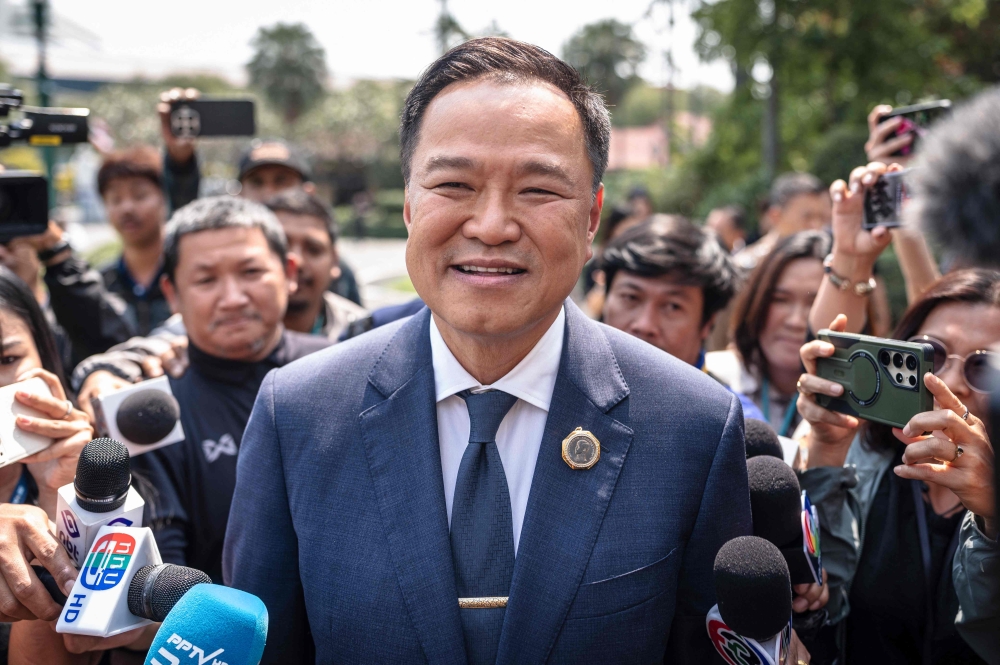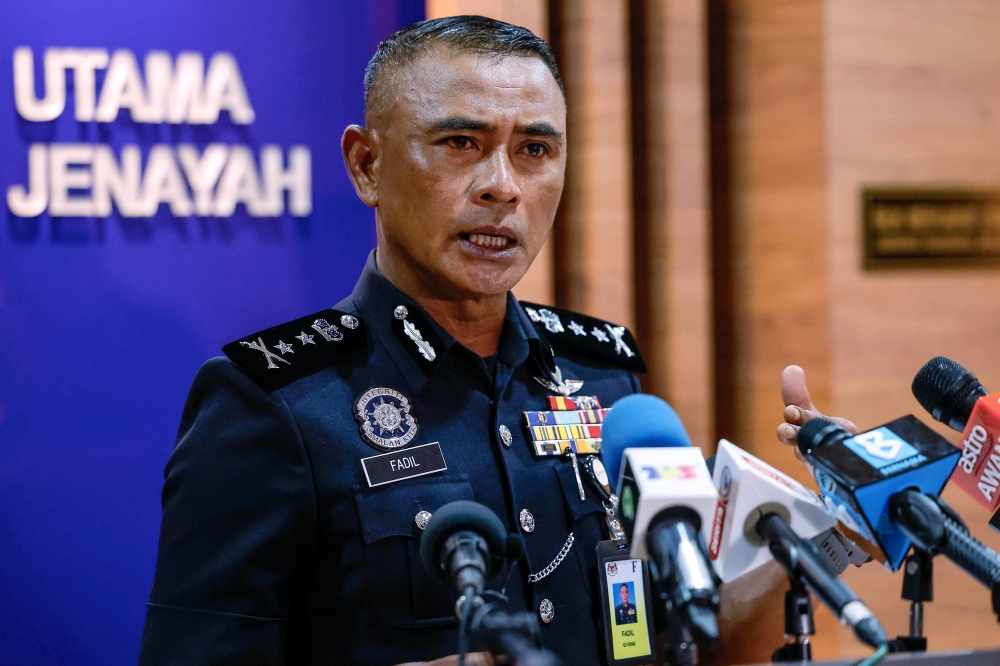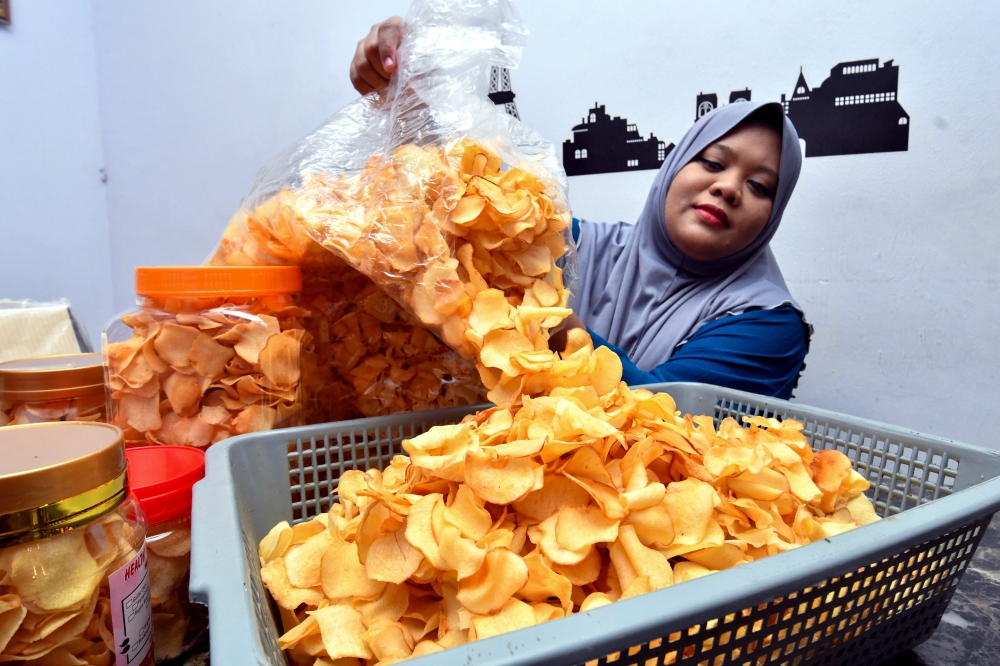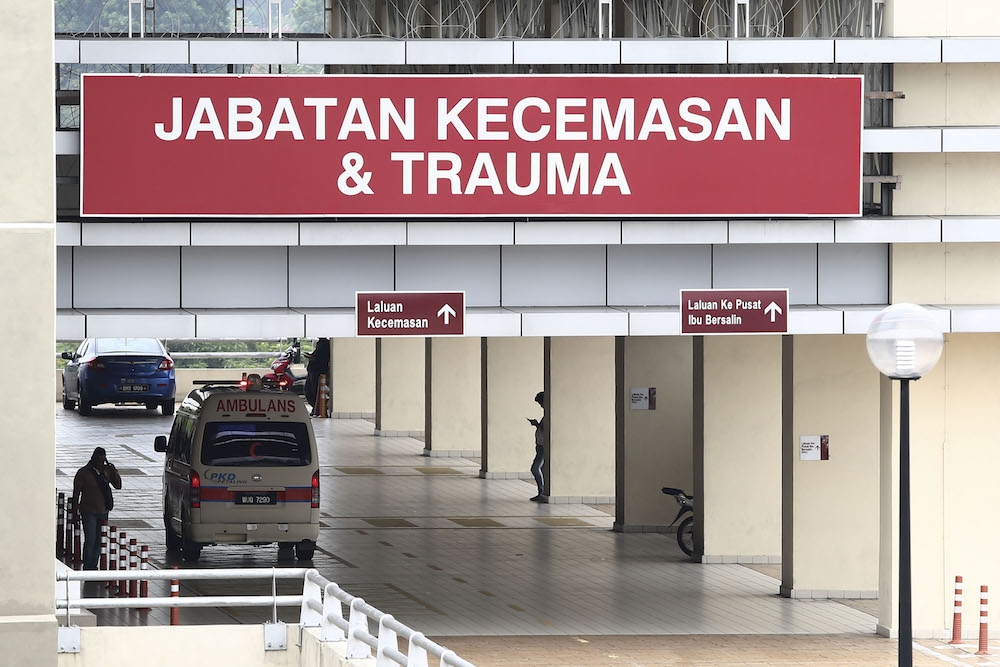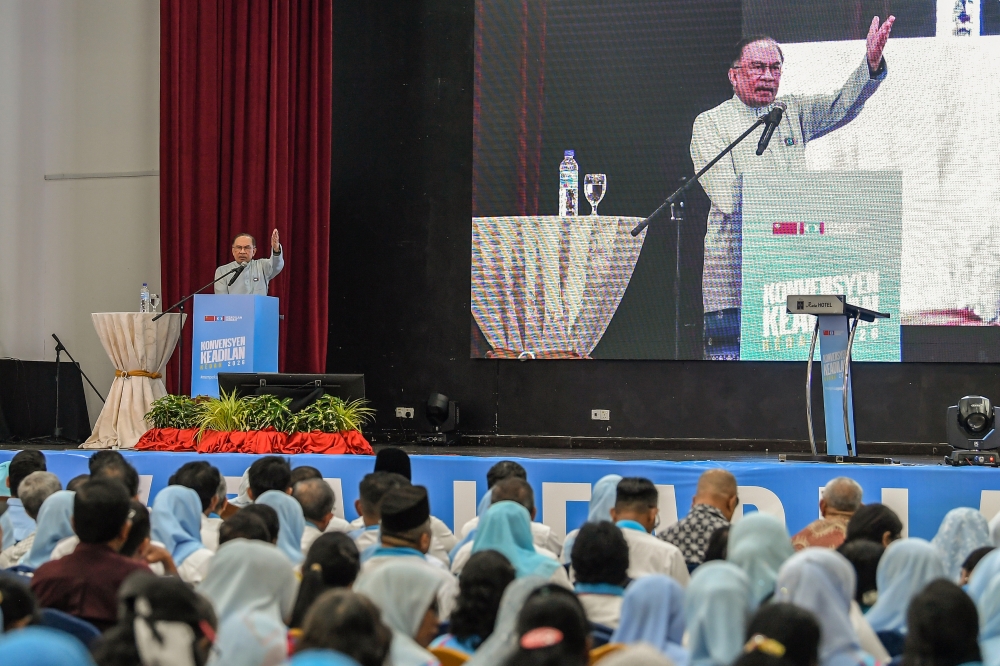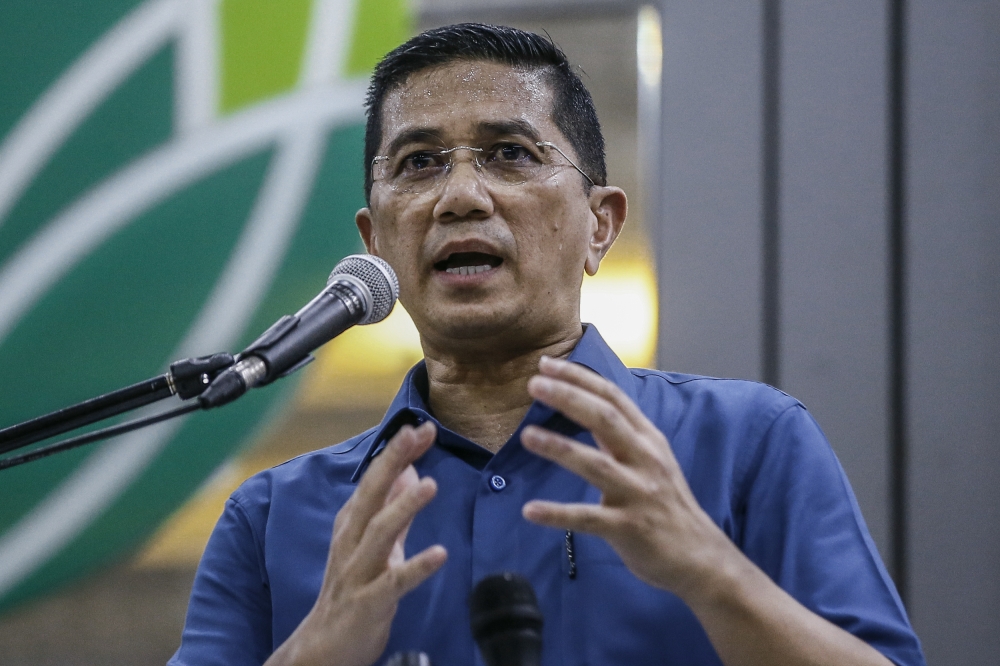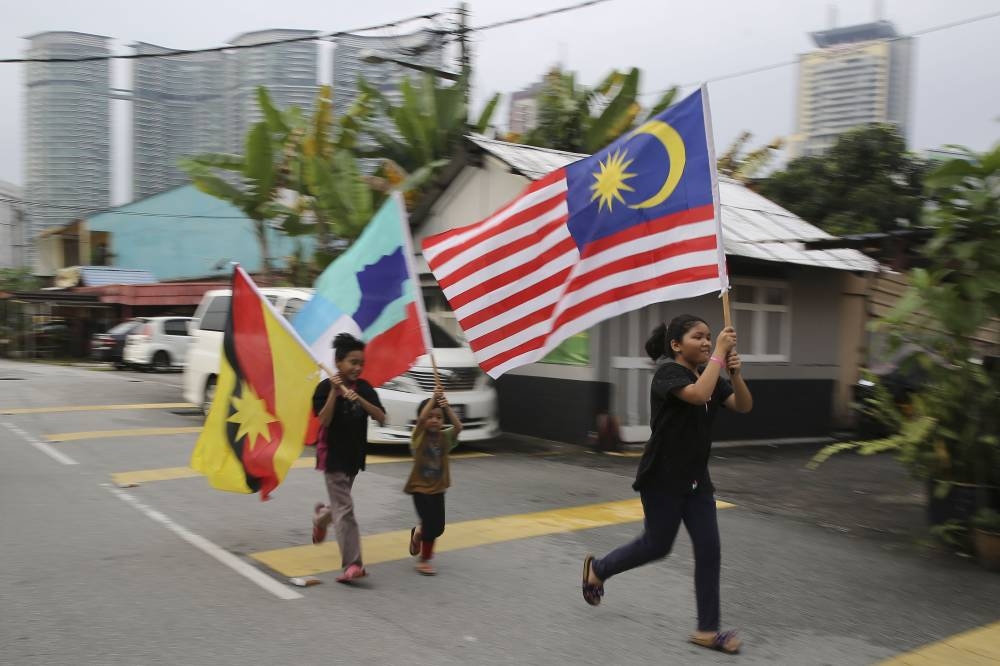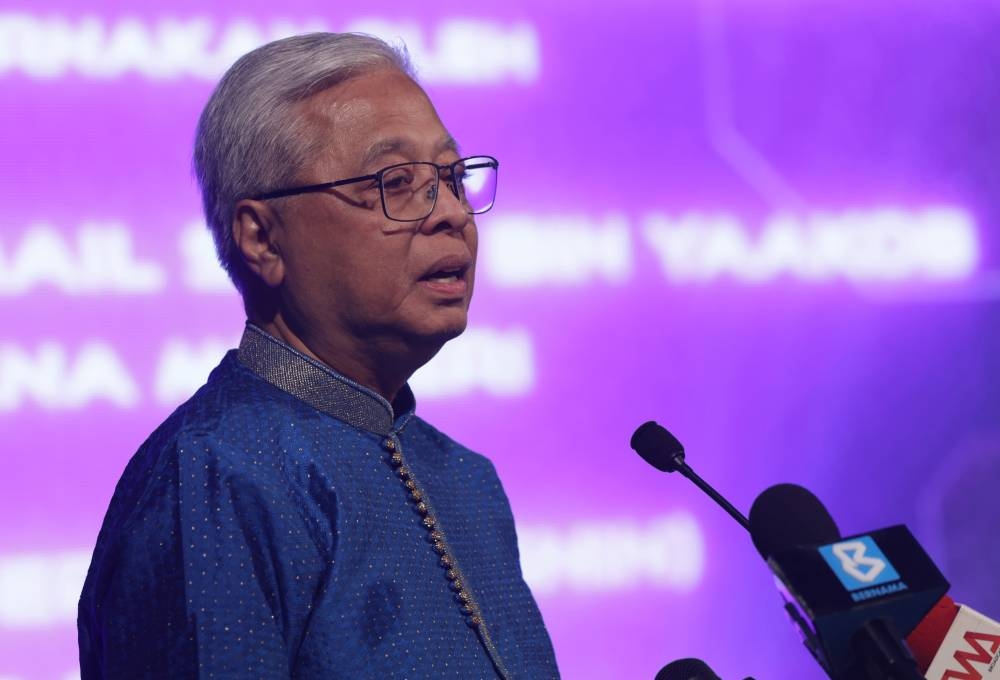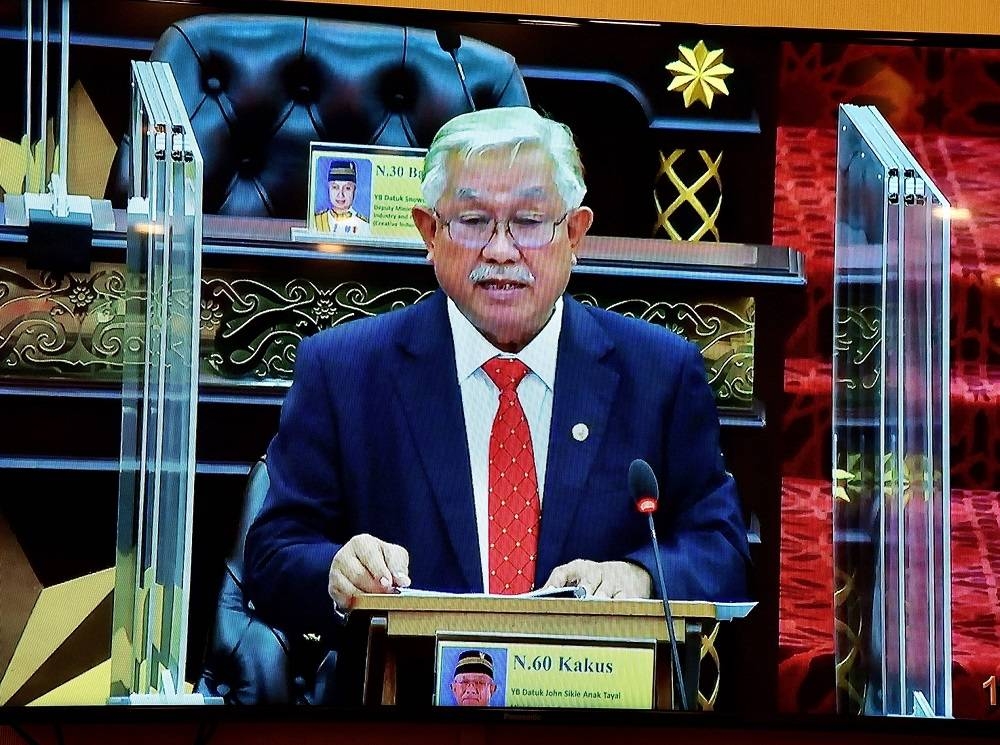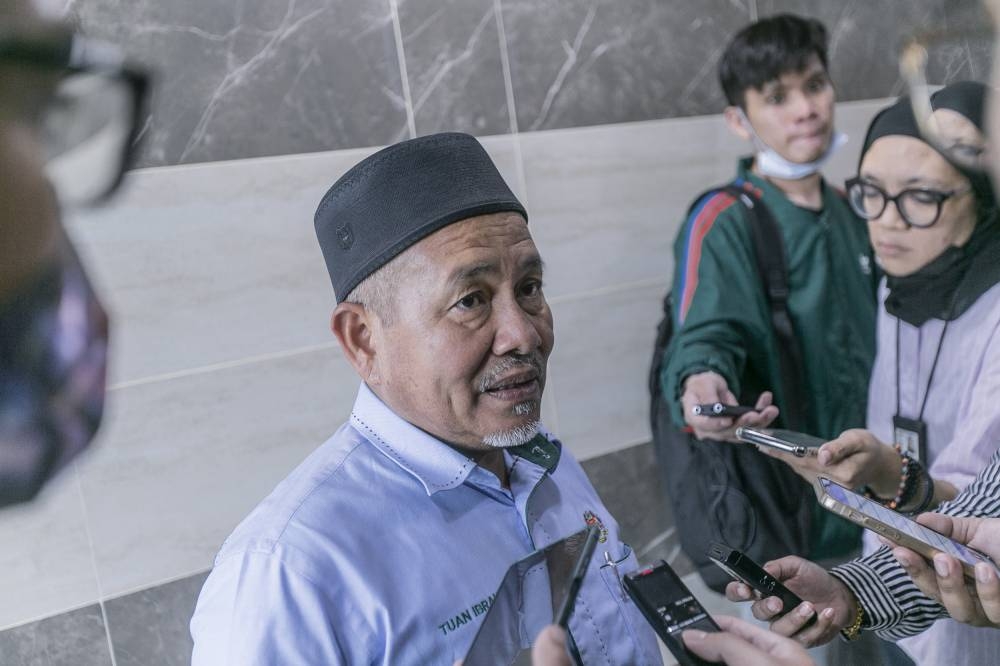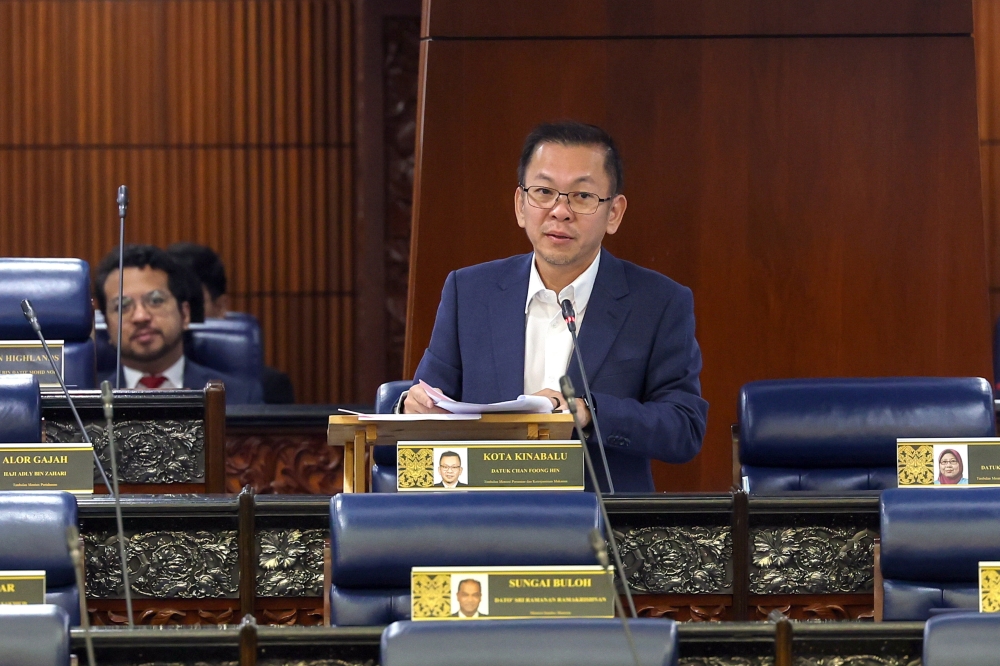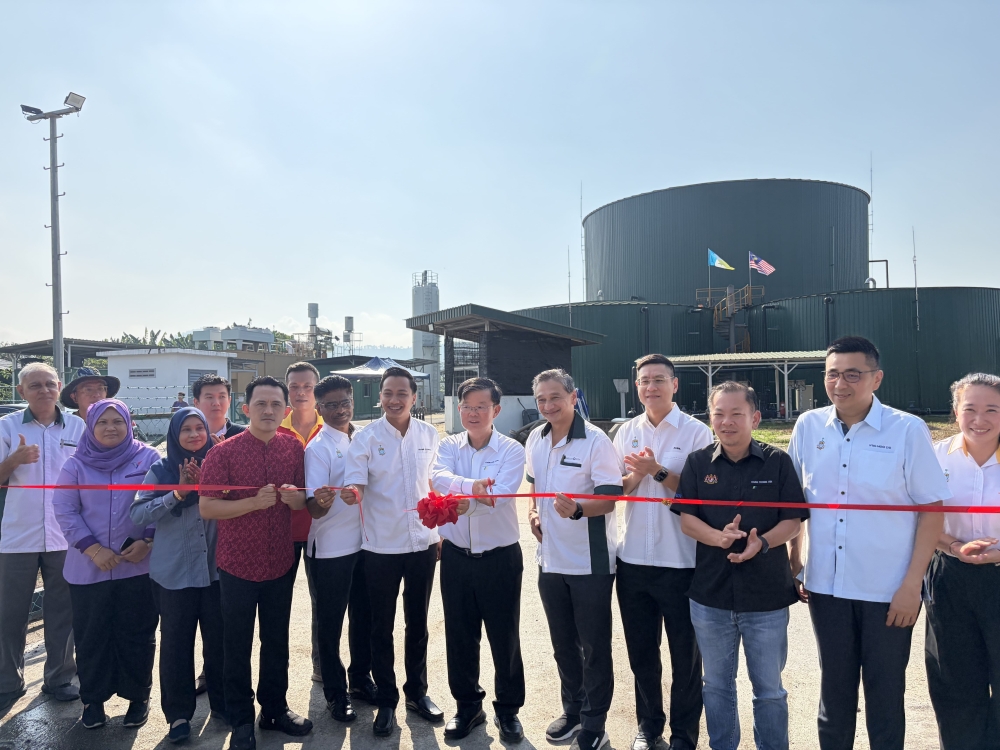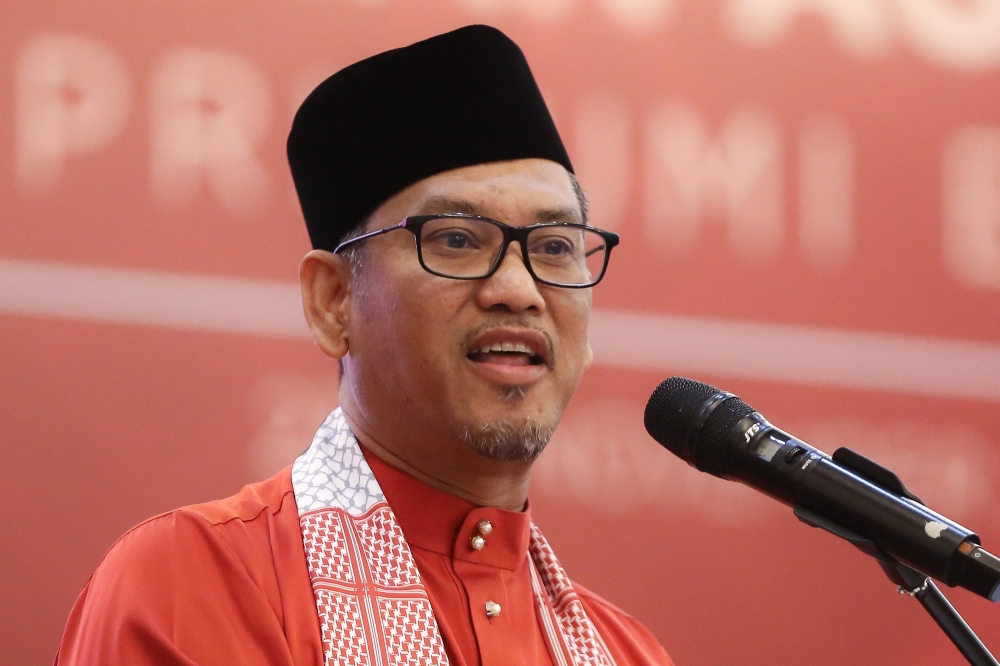KUALA LUMPUR, Oct 26 — With the 15th general election (GE15) just weeks away and without any coalition expected to be a clear winner, Barisan Nasional chairman Datuk Seri Ahmad Zahid Hamidi and Pakatan Harapan counterpart Datuk Seri Anwar Ibrahim on Sunday dangled the “carrot” of finally giving Sabahans or Sarawakians a deputy prime minister of their own.
With Sabah and Sarawak contributing 56 out of 222 parliamentary seats up for contest, this possible DPM role is yet another last-minute gesture — usually popping up only during elections — to symbolically promise more recognition to these Borneo states as equal partners.
But are these too little, too late for voters in east Malaysia (many of whom might not even be able to vote due to expensive flight tickets from Peninsular Malaysia to their hometowns and the government’s refusal to let them be postal voters)?
Malay Mail asked several political observers from Sabah and Sarawak for their views.
More DPMs, more salaries for taxpayers to bear
Datuk Jayum A. Jawan, professor of political science at Universiti Putra Malaysia, said Malaysia does not need two or three deputy prime ministers, and pointed out that it would only cost more taxpayers’ money to pay for these additional salaries.
“No. It serves no real purpose. In addition, it will tax the people more with providing pay and allowance packages for that many DPM.
“This is merely a campaign gimmick, showing our national leaders have run out of real idea to campaign on. I would have thought that they would focus on how to generate economic growth, how to share the benefits of the that economic growth, how to improve our troubled education system, how to bring back honour to the nation after so many of our national leaders are locked in court cases for various offenses that have been dragging the country in a downward spiral,” the Sarawakian told Malay Mail when contacted.
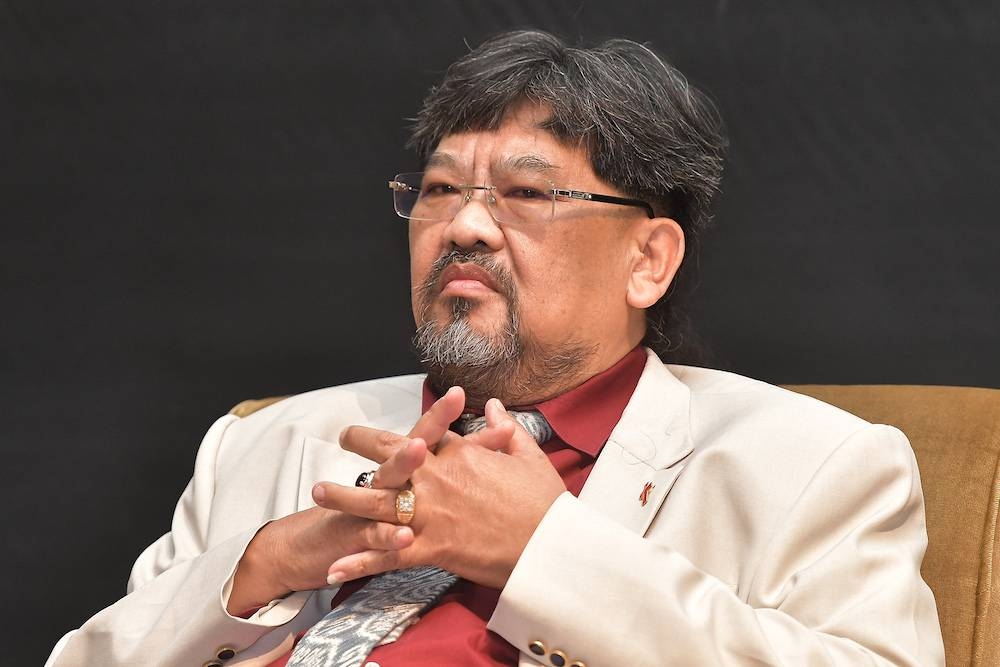
Jayum also sarcastically asked: “Cynically, why two or three and why not five? One for Malay, one for Chinese, one for Indian, one for Sabah and one for Sarawak?”
Rejecting the idea of increasing the number of deputy prime ministers in Malaysia, Jayum highlighted the contradiction with proposed cost-cutting measures: “How does that fit in with the idea of reducing the salaries of Cabinet ministers that Anwar is proposing if he becomes PM?”
Jayum, who is also an Academy of Sciences Malaysia fellow, suggested that the additional deputy prime ministers would not be fundamentally different from the “senior ministers” roles in recent Cabinets.
“It is created to brush the egos of politicians. They will feel rewarded for bringing in the number.
“Look at the present four senior ministers, whom some equate to as being deputy prime ministers. They are not performing any extra duties other than the fact that all have a specific portfolio: So how does that reduce salaries?
“Later as DPM: an MP who is a DPM will also have a portfolio, thus his or her salaries and allowances will comprise: MP salary, DPM salary, and minister in charge of one portfolio salary,” he said in pointing out the stacked up costs for the public.
Based on the latest official edition of the Members of Parliament (Remuneration) Act 1980 available online, the monthly salary for a deputy prime minister is RM18,168.15, as compared to a minister who takes home RM14,907.20 every month. This will translate to a difference of RM3,260.95, which would mean an additional RM39,131.4 per year for an additional DPM, or an additional RM195,657 for a full five-year term, based on Malay Mail’s calculations.
A DPM would cost Malaysian taxpayers a total of RM218,017.80 in salary for an entire year, or RM1,090,089 for five years, while having three DPMs would cost Malaysia RM654,053.40 in salary for an entire year, or RM1,962,160.20 or almost RM2 million. If these DPMs are also MPs, they are entitled to receiving RM16,000 in allowance every month as MPs. All these without taking into account the gratuity, pension paid every month while they are living, and other allowances and benefits received.
Previously, Tan Sri Muhyiddin Yassin broke with tradition and chose to have ministers serve as “senior ministers” instead of appointing a deputy prime minister, and had only appointed Datuk Seri Ismail Sabri Yaakob as deputy prime minister towards the end of his term.
Ismail Sabri then continued on the system of only having several senior ministers. Both the Muhyiddin Cabinet and the Ismail Sabri Cabinet featured only one east Malaysian as a senior minister, namely works minister Datuk Seri Fadillah Yusof, who is senior vice-president of Sarawak’s Parti Pesaka Bumiputera Bersatu (PBB).
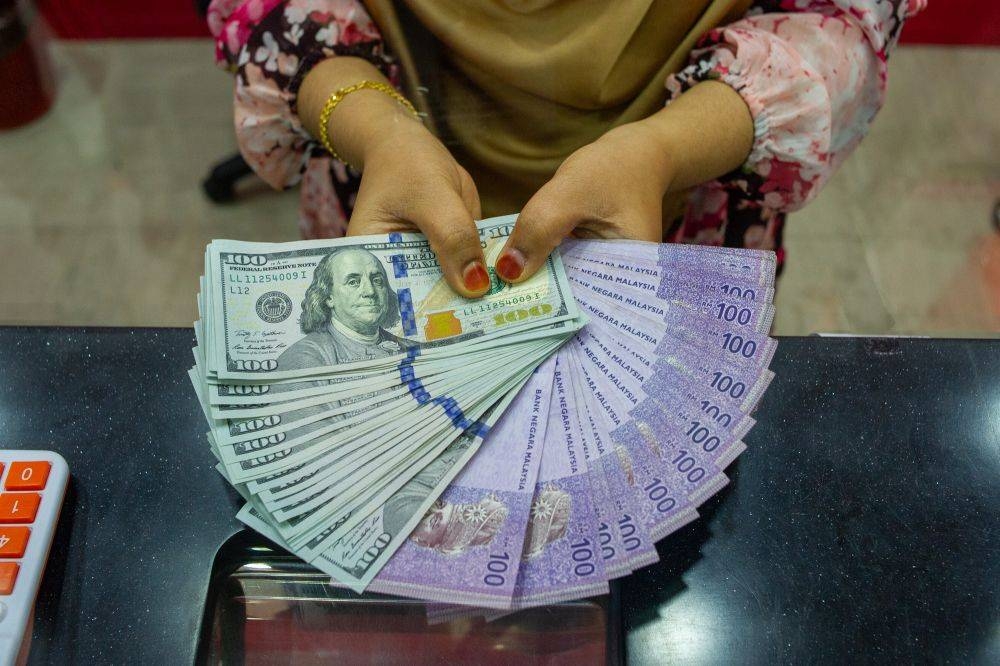
DPM post could have been given long ago
Jayum viewed senior ministers and deputy prime ministers as effectively the same, and pointed out that the Federal Constitution only specifies the positions of the prime minister and ministers as members of the Cabinet.
He noted that even deputy ministers were not members of the Cabinet and do not attend its meetings unless representing a minister who was absent.
Jayum agreed that Malaysia could do with just a prime minister without a deputy, noting: “And when the prime minister is out of the country, any one member of the Cabinet or a minister may be appointed to exercise his or her function until he or she returns to the country.”
Jayum noted that having a deputy prime minister would “provide stability” as it would serve as a “contingency plan to ensure smooth transition of power in a political party that governs”, in the event that the prime minister or party leader dies.
“But in the case of Malaysia, should it decide to have two or three DPMs, would anyone really possess the opportunity to take over should the PM passes? No, I don’t think so.
“The prerogative to ascend to the position remains within the main component of the ruling coalition. So having more than one is really a political gimmick to fish for votes, and to look popular when the doing really carries no significance in real terms.
“Should Malaysia have more than one DPM after GE15, the only DPM that will carry real power will be the DPM from the same political party as the prime minister,” he said, pointing out that becoming a minister in charge of portfolios such as finance, home affairs, defence or foreign affairs would be a role with real power and be more preferable to having the symbolic role of deputy prime minister who is not from the PM’s party.
Asked if the idea of having two or three deputy ministers would have any impact on voters in Sabah and Sarawak, Jayum bluntly said no.
“If the Malayan politicians were sincere, they could have given it a long time ago. Now they are dangling the carrot as their last lifeline.”
Since Malaysia was formed in 1963, the country has never had a Sabahan or Sarawakian being appointed to the post of deputy prime minister.
While Peninsular Malaysia, Sabah and Sarawak were meant to be equal partners in Malaysia, Ahmad Zahid’s and Anwar’s remarks on specifically adding new deputy prime minister roles for east Malaysians would raise the question of whether the DPM role was by convention reserved for those from Peninsular Malaysia only.
Ahmad Zahid had floated the idea of having three DPMs (one each for Peninsular Malaysia, Sabah and Sarawak) while Anwar acknowledged that there was a proposal to have two DPMs (one for Peninsular Malaysia and another one for Sabah and Sarawak).
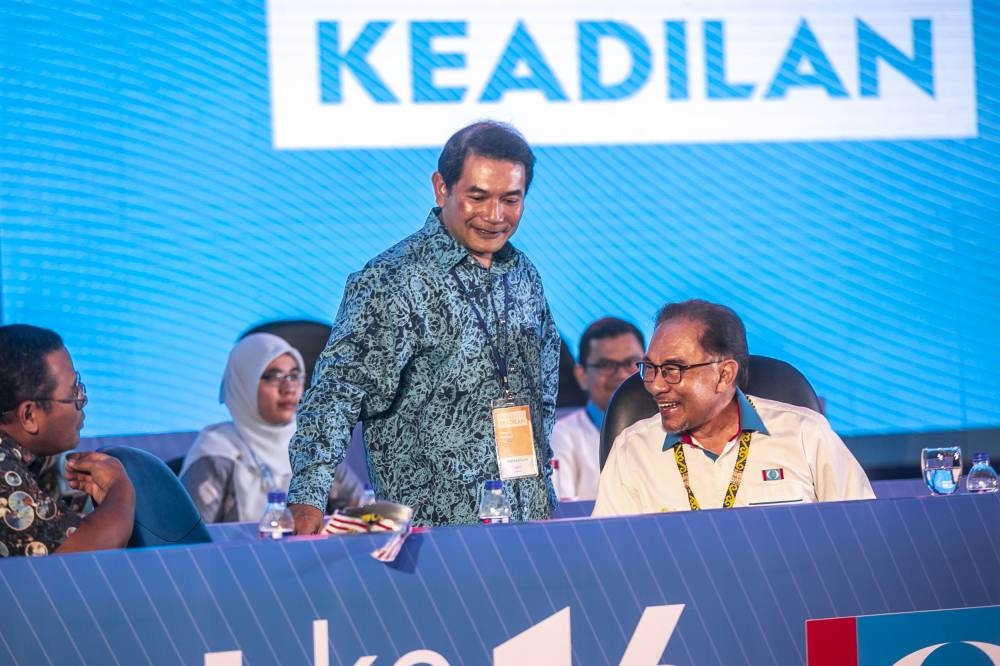
Meaningless and not attractive to voters
Oh Ei Sun, senior fellow of Singapore Institute of International Affairs, said there is no constitutional requirement for a deputy prime minister in Malaysia at all, and described it as a meaningless role without actual powers.
“It’s just an Umno tradition to have a DPM who in theory would succeed the PM when the latter steps down in a continuous, essentially one-party rule as was effectively the case before 2018, although sometimes this would instead create discord between the PM and DPM, as were the cases with Dr Mahathir and Anwar Ibrahim, as well as Najib and Muhyiddin.
“Even in UK, from where the Cabinet system originated, DPM is not the second most powerful Cabinet position, but rather chancellor of the exchequer or finance minister,” the Sabahan told Malay Mail.
“So having two or more DPMs is nothing but a politically expedient measure meant to either fish for votes — as is the case here with East Malaysian DPMs as they simply do not have the veto power when it comes to matters affecting East Malaysian interest — or diffuse potential political challenges to the sitting PM, such as that mounted by Anwar against Dr Mahathir,” he said.
He explained that having two or more deputy prime ministers would make it less clear who might succeed the prime minister: “Yes and thus let them compete among themselves instead of focusing on mounting political challenges against the PM. This is classic divide-and-rule tactic.”
As long as deputy prime ministers are not given real authority that could offset the powers concentrated on the prime minister, Oh said Malaysia could do away with having DPMs, as “even having one is redundant if he or she is essentially powerless”.
Oh agreed that a situation with senior ministers without a DPM or a situation of having two or three DPMs with no real power would be essentially the same thing but by a different name, noting: “Both equally meaningless without real, additional power.”
As for whether offering Sabah and Sarawak a multiple DPM system would influence voters there, Oh instead pointed to monetary benefits as having a greater draw, mainly due to the income disparity they face and with some living in among the poorest districts in Malaysia.
“From historical observation, disbursement of money and other material resources is most attractive to many East Malaysians and thus effective in fishing for their votes,” Oh said.
“Some who still naively harbour fantasy of equal treatment between East and West may be swayed. But I don’t think their number is a lot,” he added.
Sabah and Sarawak are known to be relatively under-developed and are states with the highest absolute poverty rate in Malaysia at 19.5 per cent and 9.0 per cent, based on the Department of Statistics Malaysia’s Household Income and Basic Amenities Survey Report 2019. Based on the same 2019 report released in July 2020, the 10 poorest administrative districts in Malaysia with the lowest median monthly household income are also all in Sabah and Sarawak with a range of RM1,999 to RM2,670.
In DoSM’s Household Income Estimates and Incidence of Poverty Report, Malaysia 2020 released in August 2021, Sabah had the highest incidence of absolute poverty at 25.3 per cent, while Sarawak was third highest at 12.9 per cent.
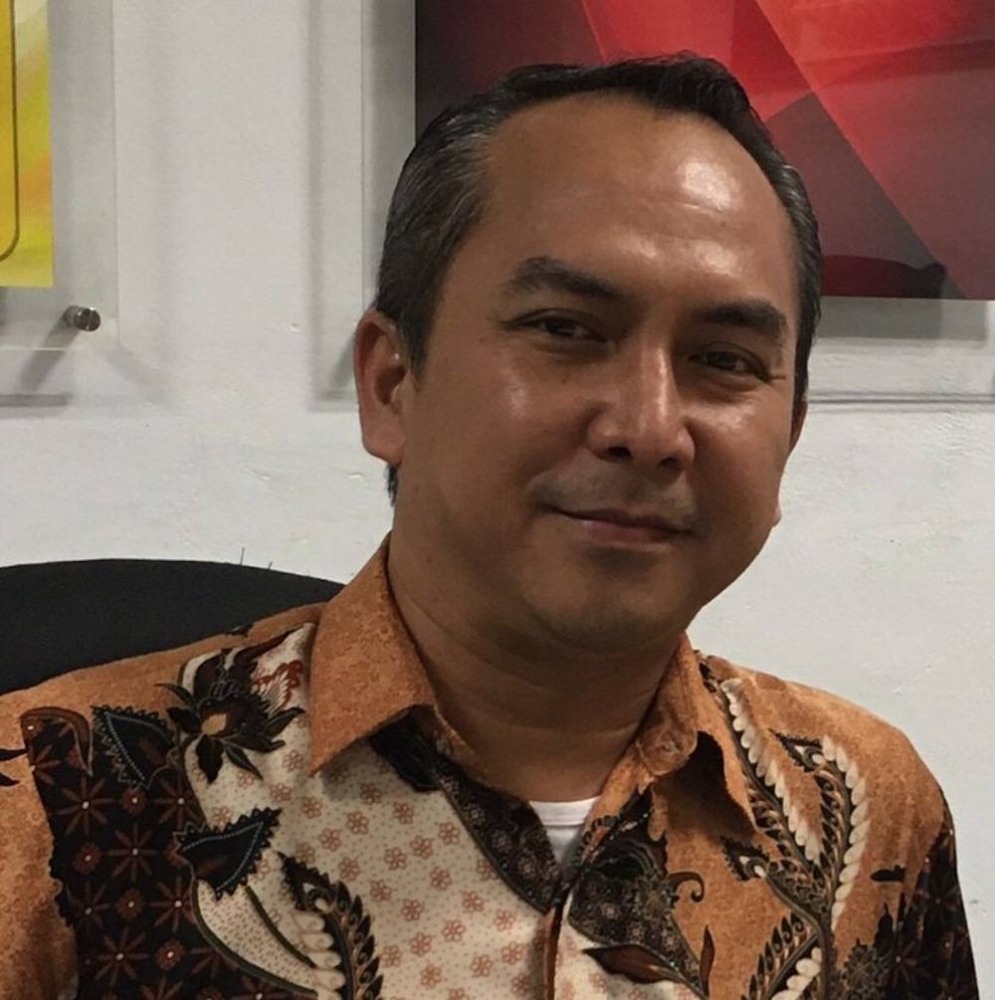
Arnold Puyok, deputy dean of Universiti Malaysia Sarawak’s faculty of social sciences and humanities, said Malaysia does not need several deputy prime ministers.
“One is enough to assist the PM whenever the PM is not around or temporarily incapacitated to carry out his/her duties. I do not see how having more than one deputy prime minister will have any practical purposes, other than to serve as political patronage,” the senior lecturer at Unimas told Malay Mail when contacted.
He stressed that the idea of having multiple deputy prime ministers would have no practical purposes “other than to meet the political demands of certain quarters”.
He viewed the suggestion of having several DPMs in Malaysia as being aimed more at securing the backing of political parties in Sabah and Sarawak, instead of being about attempts to get votes from voters in Sabah and Sarawak.
Asked if Malaysia could do away with having a deputy prime minister, he pointed out the utility of having such a single person filling this position: “When we have a DPM, at least we know the PM is grooming someone to be the next leader and that the country has a PM in waiting. This also helps to temper down the unnecessary politicking for the number two position.”
He viewed the idea of having multiple deputy prime ministers as being similar to having a few senior ministers without a deputy prime minister in recent Cabinets.
“Difference is the DPM post sounds more prestigious and if one is a DPM the idea is that he/she is potentially the next in line to be the PM. Senior ministers in this context are not more than an attempt to convince the warring parties that they are primus inter pares (first among equals). The senior ministership position was a temporary measure to stop the jostling for the DPMship,” the Unimas senior lecturer said.
As to whether the idea of having multiple deputy prime ministers would actually influence voters in east Malaysia, he noted that: “Unless the DPM post comes with a specific portfolio, it will not have a big impact on Sabah and Sarawak.”
“Rather than offering Sabah and Sarawak the DPM post, the federal leadership should initiate more programmes/plan to decentralise more power to East Malaysia. Sabah and Sarawak need policy and legal empowerment to realise the MA63 and IGC Report and not merely a DPM post,” he said, referring to the Malaysia Agreement 1963 and the Inter-Governmental Committee Report 1962.
“As a Sabahan, I do not need a DPM post. All I want are good leaders, good governance and a strong federal system,” he added.

